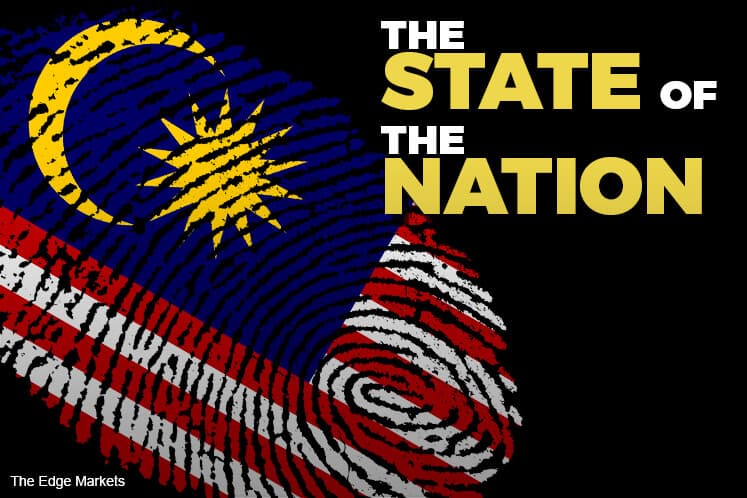
This article first appeared in The Edge Malaysia Weekly on December 31, 2018 - January 6, 2019
SUCH stupidity has never been seen before in the history of Malaysia,” Prime Minister Tun Dr Mahathir Mohamad said of expensive lopsided contracts entered into by the previous administration that contributed to the country’s staggering debt of over RM1 trillion.
And what is worse, the non-existence of exit clauses meant an expensive and painful renegotiation process for Malaysia. “We must now find a way to exit these projects at the lowest cost possible. It is all because of our own stupidity,” Mahathir said.
Some of these secret “red files”, as Finance Minister Lim Guan Eng calls them, had “unusual” terms that do not favour the government — an example being promises of sizeable payments, even if little or no work had been done.
The cancelled RM5.35 billion multi-product pipeline in Melaka and RM4.06 billion trans-Sabah gas pipeline — for which RM8.25 billion or 87.7% of the project value was said to have been paid despite 13% work completion — are examples of contracts undertaken by Suria Strategic Energy Resources Sdn Bhd, a wholly-owned subsidiary of the Minister of Finance Inc, that were negotiated exclusively by the Prime Minister’s Department without the involvement of Treasury officials, Lim revealed. He added that the Attorney-General’s Chambers had confirmed that the “contracts were signed despite numerous unanswered questions and red flags”.
Never mind checks, the red files — accounts, reports and contracts — were previously off-limits to even top and senior officials of the Treasury and National Audit Department, Lim told reporters in May, adding that many were connected to 1Malaysia Development Bhd.
The potential losses that stem from severe lapses in governance are not just the billions of ringgit but also the opportunity cost in economic, social and human capital development.
To prevent future abuses and restore public trust in the government, the current administration has promised comprehensive reforms to enhance transparency and accountability. These include strengthening the check-and-balance mechanism in government administration and ensuring separation of powers between the executive, legislative and judiciary branches of government.
Reforms outlined in the mid-term review of the 11th Malaysia Plan in October include limiting the term of office for the prime minister, chief ministers and menteris besar to two terms to curb possible power abuse and corruption, which requires amendments to the federal and state constitutions. The prime minister can no longer hold other ministerial portfolios — yes, not even education, let alone finance.
Promised reforms include giving parliament the resources to play an effective role in governance and keeping executive powers in check. These include a strong select committee system and having the Malaysian Anti-Corruption Commission (MACC) and Election Commission (EC) answerable directly to parliament. The appointment of key positions, including those in MACC, EC, National Audit Department and Judicial Appointments Commission, must also be endorsed by select committees. The MACC will also be transformed into a fully independent body while the anti-corruption legislation will be strengthened to better protect whistle-blowers.
The newly established National Centre for Governance, Integrity and Anti-Corruption (GIACC) — currently headed by former MACC chief commissioner Tan Sri Abu Kassim Mohamed — will be responsible for planning, formulating, coordinating and evaluating policies in embracing good governance and zero tolerance to corruption. GIACC’s recommendations will then be tabled before the Special Cabinet Committee on Anti-Corruption, which is currently chaired by Mahathir.
Key improvements to the legal administrative system being studied include having two different persons as the attorney-general and the public prosecutor to ensure that the duties are carried out independently, without any perception of political influence.
Reforms to ensure prudent public finance management and enhance public service delivery have also been promised. We know that the government, in September, formed a Public Finance Committee and Tax Reform Committee to step up fiscal reforms — not just for revenue generation and increasing efficiency and productivity of public-sector spending but also in terms of governance to prevent leakages. A move towards e-payment platforms, especially government transactions, will also boost transparency and reduce corruption.
The National Open Data initiative will also make available more meaningful government data for research and policy scrutiny, including by the fourth estate — with media freedom to be a check-and-balance, as promised in the Pakatan Harapan manifesto.
To curb money politics, the government said a proper framework would be developed to regulate political financing to prevent unfair advantages as well as enhance transparency and accountability.
The reforms will not be easy. The push for politicians to declare their assets on MACC’s website, for example, leaves much to be desired. To achieve its purpose as a guard against corruption, declarations also need to be consistent and meaningful enough to give the public a good idea of the politicians’ wealth.
The people who voted in the current government would not have forgotten their desire for better governance — one that would not be satisfied by high-profile corruption cases without a true clean-up of all branches of government. Only with the latter can the country’s resources be employed to its fullest potential and enjoyed fairly by all Malaysians.
The necessary checks and balances must be put in place as quickly as possible. To borrow Lord Acton’s words: “Power tends to corrupt, and absolute power corrupts absolutely. Great men are almost always bad men, even when they exercise influence and not authority; still more when you superadd the tendency of the certainty of corruption by authority. There is no worse heresy than that the office sanctifies the holder of it.”
There will be teething issues, but for Malaysia’s sake, good governance and greater transparency must not be allowed to become an empty, unfulfilled election promise.
Save by subscribing to us for your print and/or digital copy.
P/S: The Edge is also available on Apple's AppStore and Androids' Google Play.